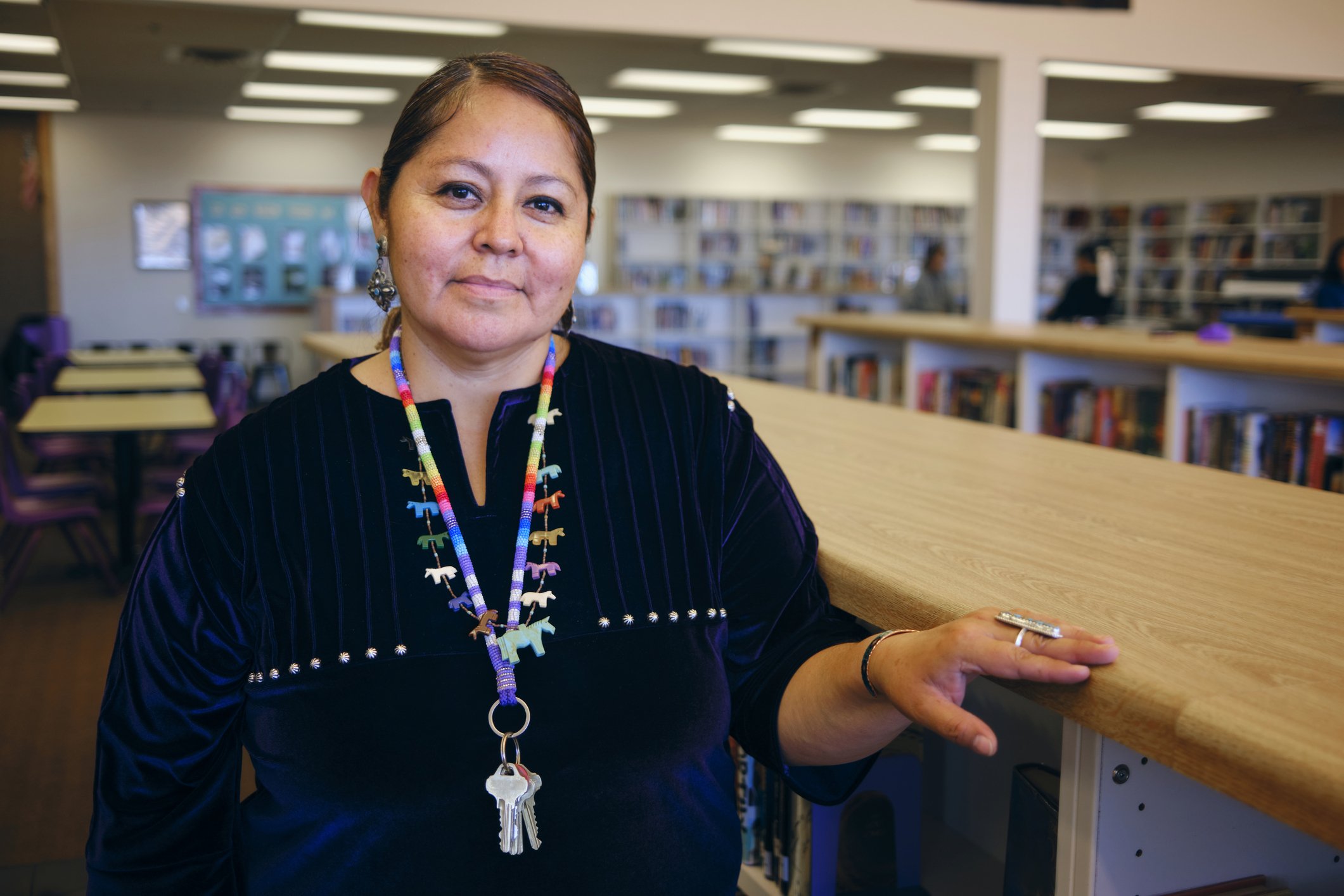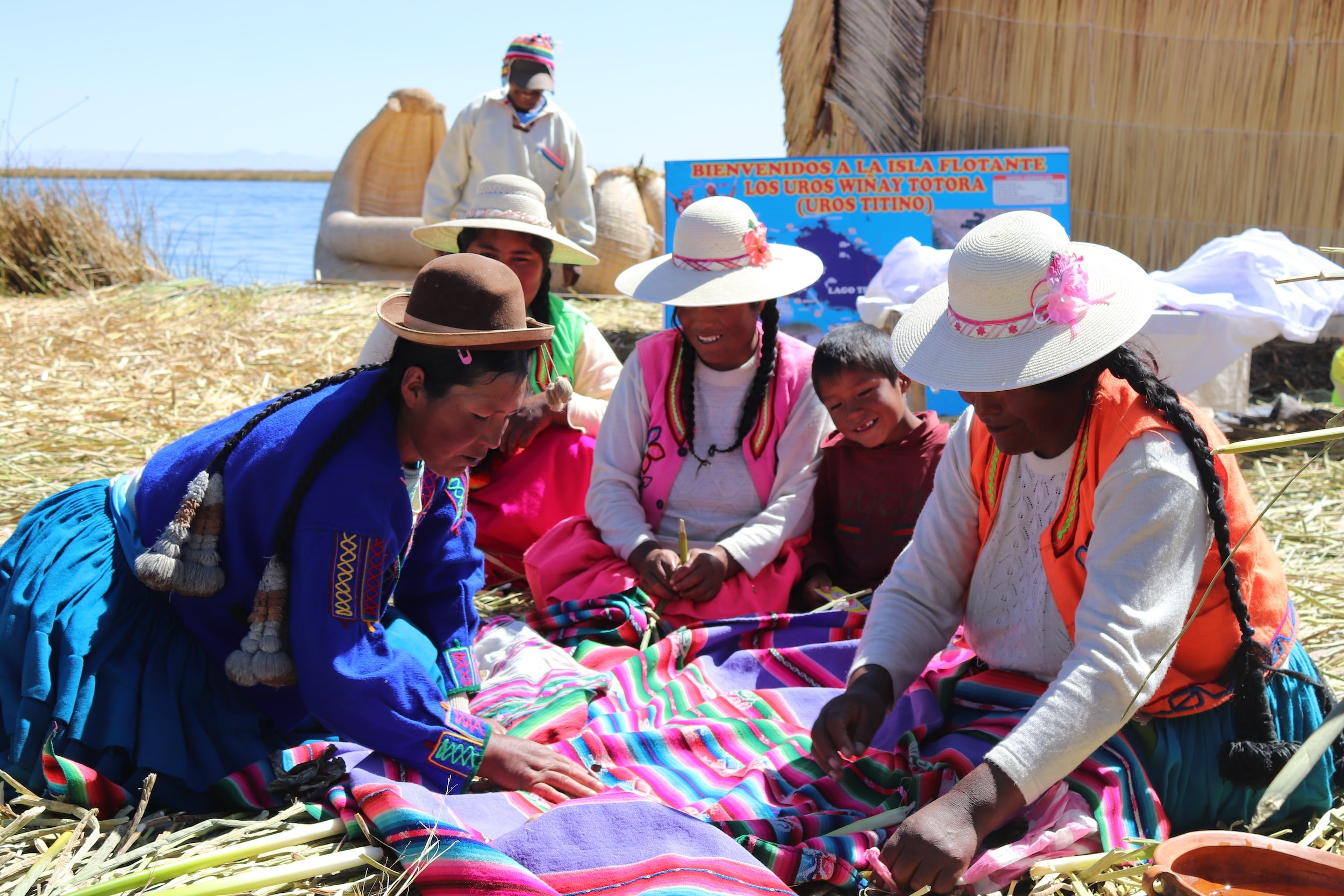Culturally Responsive Research Ethics
by Maria Lahman
Dr. Maria Lahman was the November 2021 Mentor in Residence, and she is a frequent Methodspace contributor. She is the author of Writing and Representing Qualitative Research, Ethics in Social Science Research: Becoming Culturally Responsive and the forthcoming Culturally Responsive Qualitative Research. Use the code MSPACEQ322 for a discount when ordering her books from SAGE Publishing.
When I give presentations on research ethics and ethical oversight groups such as the United States’ research ethics board (institutional review board, IRB), I ask the audience to share how they would describe IRB. Responses have included “picky, tedious, rule bound, irritating, Big Brother-ish” and, strikingly, “IRB is from hell.” Given the perceived desire of the research community to conduct ethical research with appropriate yet minimal supervision or intrusion (Israel, 2014; Katz, 2006; Lincoln & Tierney, 2004; White, 2007), what research ethics are, why researchers should care about ethics, how contemporary research ethical codes developed, and what ethical stance we should aspire to today are important issues.
Minimalist Codes: Do No Harm
Minimalist codes may also be referred to as mandatory codes or what Guillemin and Gilliam (2004) have termed “procedural ethics.” Examples include the Nuremberg Code, the Belmont Report, IRB regulations, and some academic codes that may be said to be deontological or consequentialist in focus, examining participants’ rights or outcomes of the research, respectively (Castañeda, 2006; Foster, 2001; Israel, 2014; Schwandt, 2014).
While minimalist ethical codes cover foundational concerns, research ethics should move beyond these codes due both to the irrepressible nature of all human research and to the in-depth, long-term relationships that may develop between participants and researchers in some forms of human research. It is important to note that I’m not advocating a rejection of minimalist codes but—in light of the unpredictable nature of human research, which does not allow researchers to anticipate all consequences—feel additional considerations that cannot and should not be regulated are necessary for ethical research practice. About this, Erica Scharrer and Srividya Ramasubramanian (2021) write,
While regulatory or compliance-oriented ethics are governed by questions of legality, it is important to remember that legality is usually determined by power and authority rather than integrity and social justice. In fact, slavery was legal at some point in time, just as apartheid and the Holocaust were all lawful acts within the contexts of the nations where they were practiced. Therefore, researchers should be guided, as well, by their own inner moral compass even if not required by their legal regulatory boards or professional organizations. (p. 35)
Aspirational Ethical Codes
Due to the remarkable variability of the ethical situations that may occur during research, it is important for researchers to have thought through the stance to which they wish to aspire prior to conducting research. Ethical dilemmas arising throughout the research process have been called situational ethics, “ethics in practice,” and “ethically important moments” (Guillemin & Gilliam, 2004). Aspirational ethics are the highest stance the researcher tries to attain in ethics above and beyond the minimum requirements. Researchers’ aspirational ethical stances may differ depending on culture, values, and morals, and are judged and processed internally with no mandated checks.
Examples of aspirational stances include relational ethics (Ellis, 2007), feminist ethics (Tong,1995), virtue ethics (Israel, 2014; Southern et al., 2005), narrative ethics (Schwandt, 2014), covenantal ethics (May, 1980; Schwandt, 2014), ethics in practice (Guillemin & Gilliam, 2004), caring ethics (Gilligan, 1982; Noddings, 1984), and an understanding of situational ethics (Guillemin & Gilliam, 2004).
Culturally Responsive Research Ethics
I propose culturally responsive research ethics as applicable to all researchers and research. By using the phrase “culturally responsive research ethics,” I am suggesting a stance that acknowledges that as researchers we will not be able to fully understand the perspective of the varied cultures with which we interact, as well as the need to be flexible and open to examining ethical issues in research from the perspective of the participants to the extent possible. When we conduct research across diverse cultures, we may find that people’s expectations are vastly different, or conversely, when we assume that expectations will be different in the details, they may be fundamentally the same. Most people want to be treated with respect and in a moral manner.
Culture
Culture is a construct that cannot be easily comprehended because we ourselves are immersed in culture at all times and cannot separate ourselves from it (Schwandt, 2014).
Culture has been described as “the shared beliefs and values of a group of people that are thought about and acted on” (Lahman & D’Amato, 2007, p. 181). Culture is not “an objectified, self-enclosed, coherent thing or object” or “learned by observing and documenting but something that is inferred” (Schwandt, 2014, p. 57) and includes traditions, rituals, ways of life, and customs.
When we are culturally responsive, we must first be aware of the cultures in which we are personally embedded and then attempt to understand others’ cultures. Culture is the intersection of the varieties of culture in which individuals are nested. This intersectional (Crenshaw, 2017) notion, seen as varieties of person, attempts to illustrate human lives as delightfully varied and complex, with people who hold similar characteristics possibly differing from one another (Davis, 1998; Lahman, 2008, 2017; Lahman et al., 2011).
Responsiveness
This is an engaged, responsive process. The notion of being responsive within research ethics brings to the meaning of the word “response” an added sense of urgency and positivity, as in the dictionary definitionsof “responsive,” which include phrases such as quick to respond, sympathetic, quick to react appropriately, and “react quickly and favorably” (Collins Dictionary, nd) and also “sympathetically” (Merriam-Webster, 1987, p. 1055). Noddings (1984) extends these basic definitions saying that a caring response involves stepping out of one’s own personal frame of reference into the other’s:
When we care, we consider the other’s point of view, his [their] objective needs, and what he expects of us. Our attention, our mental engrossment is on the cared-for, not on ourselves. Our reason for acting then, have to do both with the other’s wants and desires and with the objective elements of his problematic situation. (p. 24)
Being a culturally responsive researcher involves the following values based on Farmer et al. (2005): (a) “explicit recognition, valuing, and discussion” of cultural differences (p. 61); (b) validating the worldviews of participants; (c) explicitly discussing power differentials; and (d) acknowledging that nontraditional research methods may work better with participants of differing cultural values. In addition, cultural responsiveness includes an affirming attitude toward cultural differences (Villegas & Lucas, 2002, 2007).
On a practical level, being responsive means providing “ongoing information as it becomes available, even when it requires the use of appropriate and judicious researcher self-disclosure” (Etherington, 2007, p. 614). In addition, Ellis (2007) refers to this type of responsiveness as researchers “checking at each stage to make sure participants still want to be part of their projects” (p. 23). Providing ongoing information and using process consent both involve a continuous process of integrity, rather than the more typical one-time discussion of consent, which might not have a favorable outcome for the researcher. The risk of having participants remove themselves from a study, thus threatening the future of the research, is real. A researcher whose stance is grounded in culturally responsive research ethics will not shy away from such responsive actions.
Relational Ethics
Relational researchers “hold relational concerns as high as research” (Ellis, 2007, p. 25). Relational researchers balance their research with their “obligations toward, care for, and connection with those who participate in our research” (Etherington, 2007, p. 614). Building on this foundation, I suggest that culturally responsive research ethics researchers “seek the good” (Ellis, 2007, p. 23) and build trust.
Relational researchers have been said to seek the good. This statement, meant to be pondered, is supported by Lawrence-Lightfoot’s extensive writing in this area (Lawrence-Lightfoot, 2000; Lawrence-Lightfoot & Hoffman, 1997). What the “good” is must be guided by basic principles that will be enacted differently depending on the context of the ethical situation. Ellis (2007) gives a series of suggestions on how to seek the good and be a relational researcher, including understanding that research ethics board approval is not the end of ethics; discussing research with others; practicing “process consent” (Munhall, 1988); considering if the good justifies the risk; letting participants read researchers’ work; when writing, describing instead of labeling or judging; “hold[ing] relational concerns as high as research” (Ellis, 2007, p. 25); and, finally, attempting a stance of care.
Molyneux et al. (2005) noted that trust is a basic component of relational research and examined trust in relation to biomedical research. Trust is a “relational notion, describing a voluntary relationship between two or more people” (p. 1463). The authors go on to encourage the establishment of participant trust and researcher respect for healthy mistrust by participants in research relationships. While this may not prevent problems, they believe that holding this relational stance from the outset of the research process will assist in working with problems as they occur. Healthy mistrust is described as participants actively attempting to understand the research process and not simply signing over their rights in ignorance. The authors point out that a relational stance is an internal ethical stance that cannot be regulated by governments or boards; it relates directly to the ideas of aspiration and culturally responsive research ethics.
Being relational is related to care and feminism (Noddings, 1984, 1988, 1992; Olsen, 1994, 2005) such that “relationships with participants lie at the heart of feminist ethical concerns” (Olsen, 2005, p. 255). In the tradition of Gilligan (1982), culturally responsive research ethics researchers want to engage with participants’ “different voice(s).” By caring ethics, I mean a theoretical stance that emphasizes reciprocal relationships, recognition, growth, and responsiveness enacted through applied caregiving. An ethic that emphasizes relations or care does not mean a rejection of all other ethics. Instead, it may become the frame on which researchers construct their ethical stance.
Reflexive Ethics
While reflexivity is arguably one of the most important constructs in qualitative research, we feel all researchers, regardless of paradigm, would benefit by conducting research from a reflexive stance. Reflexivity as discussed here is an optimistic, activist construct that in research has been said to be an ongoing conversation about experience while simultaneously living in the moment: “Reflexivity, then, is ubiquitous. It permeates every aspect of the research process, challenging us to be more fully conscious of the ideology, culture, and politics of those we study and those we select as our audience” (Hertz, 1997, p. viii).
Finlay and Gough (2003) added that the root of the word “reflexive” means to “bend back upon oneself.” In research terms, this can be translated as thoughtful, self-aware analysis of the intersubjective dynamics between the researcher and the researched. Reflexivity requires critical self-reflection of the ways in which researchers’ social background, assumptions, positioning, and behavior have an impact on the research process.
Therefore, if reflection is seen as occurring after an experience, reflexivity occurs before, during, and after an experience such that it “becomes a continuing mode of self-analysis and political awareness” (Callaway in Hertz, 1997, p. viii). To engage with issues in a reflexive manner, researchers are encouraged to keep a researcher journal where they reflect on happenings in the field.
Etherington (2007) suggests that reflexivity applied to ethics has many facets. In the case of culturally responsive research ethics, a researcher is reflexive to the interactions of self, others, and situations. A reflexive researcher notices the reactions to a research situation and adapts in a responsive, ethical, moral way, where the participant’s dignity, safety, privacy, and autonomy are respected. Additionally, the researcher pays special attention to the possible power imbalances between the researcher and the participants. Finally, reflexive researchers use their writing as a tool to be transparent so their “work can be understood, not only in terms of what we have discovered, but how we have discovered it” (Etherington, 2007, p. 601). Attention to these influences provides reflexive researchers the opportunity to look at the research process and critically view their own role and actions (Guillemin & Gilliam, 2004).
In qualitative research, reflexivity is used to enhance the trustworthiness of the study (Hertz, 1997). Reflexivity can be a way to examine the complete research process and a vital procedure for enhancing validity. In quantitative research, although not explicitly stated as such, researchers are reflexive when paying attention to issues that influence validity, such as history and maturation effects. This type of reflexivity improves the quality, trustworthiness, and/or validity of the inferences made. In this sense, reflexivity is related to “knowledge creation” (Guillemin & Gilliam, 2004, p. 275), or what I would call ethical knowledge creation.
Culturally Responsive Research Ethics in Practice
Villegas and Lucas (2002, 2007) described six strands of culturally responsive teaching as a standard for which all teachers seeking to reach students should strive. When the stance of culturally responsive teaching is extended to research ethics, it brings highly ethical implications. A minimalist ethical code now becomes merely a starting point, and a culturally responsive researcher will be committed to ongoing negotiation of what each participant’s cultural needs are and how they can best be honored and maintained over the research process. An assumption inherent in the eight strands of culturally responsive research ethics discussed below (informed by culturally responsive teaching and modified from Villegas & Lucas, 2002, 2007) is that all researchers can adopt or incorporate aspects of the strands into their own inquiry. The impact of culturally responsive research ethics may be different depending on the researcher, research topic, and research design; however, for all researchers regardless of methodology, this stance is primarily about who we are as researchers, what goals we set for our research, and a commitment to the primacy of the research process over outcomes. For instance, in an experimental design, much of the obvious influence of culturally responsive research ethics will take place prior to the design’s implementation, through attempts to understand the culture of the sample one plans to work with, designing the experiment accordingly, and examining the nature of the biases we inherently bring to research as relatively privileged academics. Conversely, in naturalistic research, culturally responsive research ethics may be obvious throughout the research process. In the following sections, we elaborate on each strand and present three examples from our research.
Eight Strands of Culturally Responsive Research Ethics
A culturally responsive ethical researcher
1. is socioculturally conscious
2. is able to operate from an asset-based framework, seeing all participants’ backgrounds as opportunities for research
3. sees themself as a change agent responsible for creating environments for all participants to be successfully heard
4. is able to creatively navigate varied participants’ communication styles and preferences in order to co-construct knowledge
5. utilizes the individual participant’s story to expand and build their research knowledge base and, we would add, acknowledges the personal perspectives of their identity
6. seeks the good through research
7. is reflexive throughout the research process; and
8. cultivates culturally responsive, relationally reflexive research practices.
The final strand is a commitment to cultivate culturally responsive research practices, or an integration of all the other strands.
This blog entry draws on the following publications:
Lahman, M. K., Geist, M. R., Rodriguez, K. L., Graglia, P., & DeRoche, K. K. (2011). Culturally responsive relational reflexive ethics in research: The three Rs. Quality & Quantity, 45(6), 1397–1414. https://doi.org/10.1007/s11135-010-9347-3
Lahman, M. K. (2017). Ethics in social science research: Becoming culturally responsive. Sage. https://doi.org/10.4135/9781071878750
References
Castañeda, Q. E. (2006). Ethnography in the forest: An analysis of ethics in the morals of anthropology. Cultural Anthropology, 21(1), 121–145. https://doi.org/10.1525/can.2006.21.1.121
Collins Dictionary (n.d.) https://www.collinsdictionary.com/us/dictionary/english/responsive
Crenshaw, K. W. (2017). On intersectionality: Essential writings. New Press.
Davis, J. M. (1998). Understanding the meanings of children: A reflexive process. Children & Society, 12(5), 325–335. https://doi.org/10.1111/j.1099-0860.1998.tb00089.x
Ellis, C. (2007). Telling secrets, revealing lives: Relational ethics in research with intimate others. Qualitative Inquiry, 13(1), 3–29. https://doi.org/10.1177/1077800406294947
Etherington, K. (2007). Ethical research in reflexive relationships. Qualitative Inquiry, 13(5), 599–616. https://doi.org/10.1177/1077800407301175
Farmer, J., Hauk, S., & Neumann, A. M. (2005). Negotiating reform: Implementing process standards in culturally responsive professional development. High School Journal, 88(4), 59–71. https://doi.org/10.1353/hsj.2005.0008
Finlay, L., & Gough, B. (Eds.). (2003). Reflexivity: A practical guide for researchers in health and social sciences (3rd ed.). Blackwell. https://doi.org/10.1002/9780470776094
Foster, C. (2001). The ethics of medical research on humans. Cambridge University Press. https://doi.org/10.1017/CBO9780511545498
Gilligan, C. (1982). In a different voice: Psychological theory and women’s development. Harvard University Press. https://doi.org/10.4159/9780674037618
Guillemin, M., & Gilliam, L. (2004). Ethics, reflexivity, and “ethically important moments” in research. Qualitative Inquiry, 10(2), 261–280. https://doi.org/10.1177/1077800403262360
Hertz, R. (1997). Reflexivity and voice. Sage.
Israel, M. (2014). Research ethics and integrity for social scientists: Beyond regulatory compliance. Sage. https://doi.org/10.4135/9781473910096
Katz, J. (2006). Ethical escape routes for underground ethnographers. American Ethnologist, 33(4), 499–506. https://doi.org/10.1525/ae.2006.33.4.499
Lahman, M. K. (2008). Always othered: Ethical research with children. Journal of Early Childhood Research, 6(3), 281–300. https://doi.org/10.1177/1476718X08094451
Lahman, M. K. (2017). Ethics in social science research: Becoming culturally responsive. Sage. https://doi.org/10.4135/9781071878750
Lahman, M. K., & D’Amato, R. C. (2007). Ethnography. In A. M. Bursztyn (Ed.), The Praeger handbook of special education (pp. 181–182). Praeger.
Lahman, M. K., Geist, M. R., Rodriguez, K. L., Graglia, P., & DeRoche, K. K. (2011). Culturally responsive relational reflexive ethics in research: The three Rs. Quality & Quantity, 45(6), 1397–1414. https://doi.org/10.1007/s11135-010-9347-3
Lawrence-Lightfoot, S. (2000). Respect: An exploration. Perseus Books.
Lawrence-Lightfoot, S., & Hoffman, J. D. (1997). The art and science of portraiture. Jossey Bass.
Lincoln, Y., & Tierney, W. (2004). Qualitative research and institutional review boards. Qualitative Inquiry, 10(2), 219–234. https://doi.org/10.1177/1077800403262361
May, W. F. (1980). Doing ethics: The bearing of ethical theories on fieldwork. Social Problems, 27(3), 358–370. https://doi.org/10.2307/800254
Merriam-Webster. (1987). Webster’s ninth new collegiate dictionary. Merriam-Webster.
Molyneux, C. S., Peshu, N., & Marsh, K. (2005). Trust and informed consent: Insights from community members on the Kenyan coast. Social Science & Medicine, 61(7), 1463–1473. https://doi.org/10.1016/j.socscimed.2004.11.073
Munhall, P. L. (1988). Ethical considerations in qualitative research. Western Journal of Nursing Research, 10(2), 150–162. https://doi.org/10.1177/019394598801000204
Noddings, N. (1984). Caring: A feminine approach to ethics and moral education. University of California Press.Noddings, N. (1988). An ethic of caring and its implications for instructional arrangements. American Journal of Education, 96(2), 215–230. https://doi.org/10.1086/443894
Noddings, N. (1992). The challenge to care in schools. Teacher’s College Press.
Scharrer, E., & Ramasubramanian, S. (2021). Quantitative research methods in communication: The power of numbers for social justice. Routledge. https://doi.org/10.4324/9781003091653
Schwandt, T. A. (2014). The Sage dictionary of qualitative inquiry. Sage.
Southern, S., Smith, R., & Oliver, M. (2005). Marriage and family counseling: Ethics in context. Family Journal, 13(4), 459–466. https://doi.org/10.1177/1066480705278688
Tong, R. (1995). Feminine and feminist ethics. Social Philosophy Today, 10, 183-205. https://doi.org/10.5840/socphiltoday19951037
Villegas, A. M., & Lucas, M. (2002). Preparing culturally responsive teachers: Rethinking the curriculum. Teacher Education, 53(1), 20–32. https://doi.org/10.1177/0022487102053001003
Villegas, A. M., & Lucas, T. (2007). The culturally responsive teacher. Educational Leadership, 64(6), 28.
White, R. F. (2007). Institutional review board mission creep: The common rule, social science, and the nanny state. Independent Review, 11(4), 547–564.
























Read this collection of multidisciplinary articles to explore epistemological questions in Indigenous research.